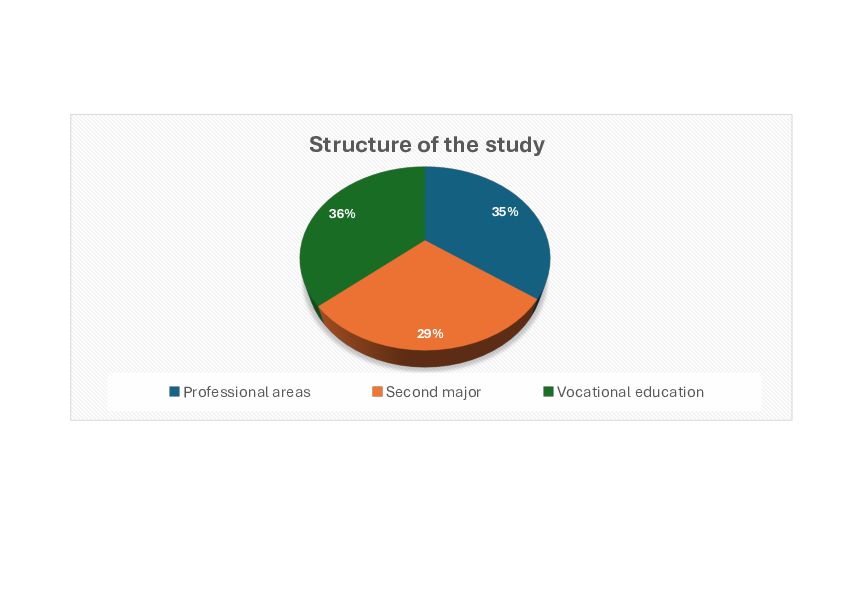Teaching at vocational schools
What does a teacher at vocational schools do?
- The potential range of activities for teachers at vocational schools is broad. This is due to the diverse educational and training opportunities offered at vocational schools and the different target groups they cater to, focusing on professional education. Teachers at vocational schools, for example, accompany...
- Young adults in career preparatory measures, guiding them in their professional orientation and helping them acquire initial professional skills. Teachers support disadvantaged students and assist them in their individual career choices and career planning.
- Young people during their vocational training: they support the acquisition of general and job-specific knowledge, skills, abilities, and competencies. Depending on the training occupation, vocational training takes place predominantly or partially in a vocational school.
- Individuals who are reorienting their careers or seeking further education: they attend retraining, further education, or advanced training (e.g., to become a technician) at a vocational school.
The core components of activities at vocational schools include
- Preparation, implementation, and follow-up of lessons in various types of schools (e.g., vocational school, higher vocational school, specialized high school).
- Advising, supporting, and accompanying learners.
- Collaboration with colleagues in various working groups and topic fields, e.g., for the further development of the school and teaching.
- Close cooperation with training companies and other external partners.
Vocational school teachers are also involved in conducting chamber examinations (e.g., for completing vocational training), participating in discussions in state committees, and developing training occupations and professional curricula. They influence the further development of the vocational education and training system.
Occupational fields of Study at the University of Rostock
- Electrical engineering
- Information technology
- Agricultural economy
- Metal engineering
- Construction technology (at the faculty of Social science and economics)
- Business and administration (in Cooperation with the University of Applied Science in Neubrandenburg)
- Health
- Social work / pedagogy
The Content and the second subject
- The course of study extends over 10 semesters into a BA and MA study portion. Students study vocational education, a vocational first subject (see above) and a general secondary subject from the following selection:
- English (Proof of language proficiency level B2)
- Protestant Religion
- French (Proof of language proficiency level B2)
- Computer science (not in connection with the professional specialisation “Information Technology”)
- Mathematics
- Philosophy
- Physics
- Social studies (limited seating capacity – if necessary, drawing of lots)
- Spanish (Proof of language proficiency level B1)
- Sports (apitude test necessary)
- Deutsch
Bachelor's degree programme Vocational Education – Teaching at vocational schools
Vocational and Economic Pedagogical Degree Programmes for Teaching at Vocational Schools
https://www.ibp.uni-rostock.de/storages/uni-rostock/Alle_PHF/IBP/Studium/Uebersicht_Stg_ibp_LbS.pdf
Admission requirements and access to the teaching profession
Entrants should have completed vocational training or at least one year of professional practice in the profession to be taught and have the general university entrance qualification.
A transversal entry from a subject-oriented bachelor's programme is also possible.
After graduation, the graduates start a 1 1⁄2 yearly traineeship in the vocational schools, where above all the practical skills of action are further developed. After that, you can become a teacher.

